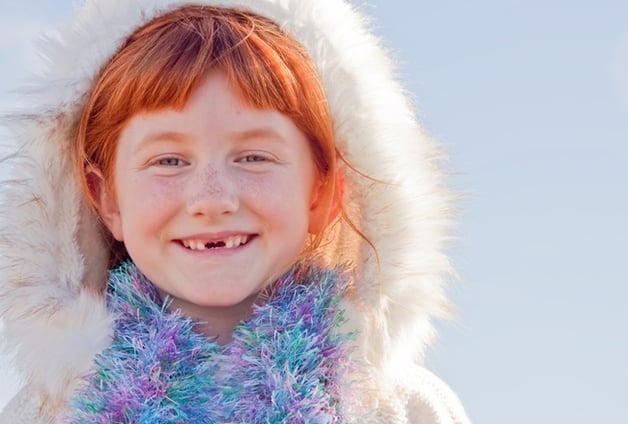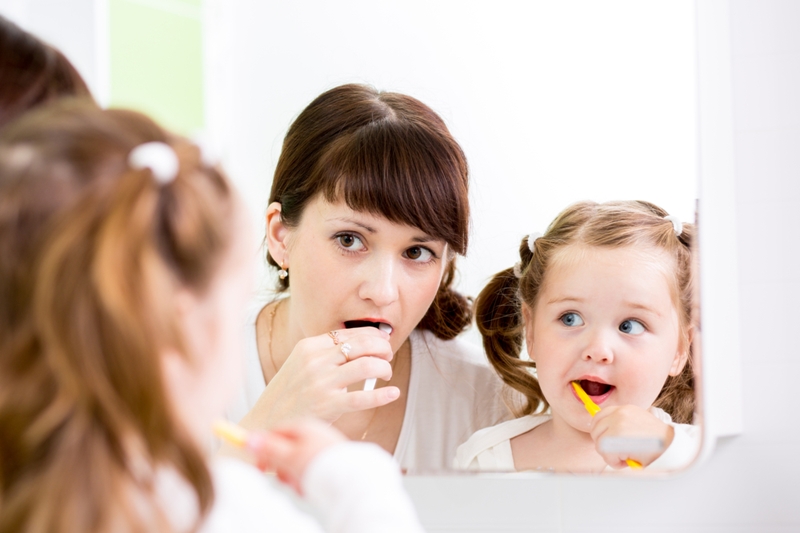
That first wiggly tooth is a momentous occasion for parents and kids alike, but it can also bring about a lot of questions. Is this process happening too early? Is my child in pain? Of course, these inquiries can all be addressed at your biannual dentist's appointments, and you can also schedule an earlier visit with the help of a dental discount card. However, a loose tooth hardly requires a trip to a dental health professional. With a little research, you can rest assured that your child is on the right track to a healthy smile. Here is what you need to know before the tooth fairy arrives:
Loose tooth basics
By about age six, sometimes a few years earlier or later, it's perfectly natural for children to start losing some of their 20 primary teeth, otherwise known as baby teeth. That's because their permanent teeth are preparing to erupt. Primary teeth usually become loose in the same order they grew. That means the two front teeth on the bottom, known as the central incisors, are typically the first to go. This process will continue for about six more years until all the primary teeth have fallen out.
"Let primary teeth come out on their own."
Should I pull the teeth out?
Kids will wiggle, twist and pull on their loose teeth, though it's typically best if you let them come out on their own. Of course, biting into an apple or getting a little too rough at recess can quicken the process, but losing the tooth too early may effect your child's smile. Should the tooth become removed from the socket, whether due to decay, physical accident or intentional removal, other primary teeth may close in on the empty space, causing an obstruction to erupting permanent teeth.1 Additionally, this puts the gums at a higher risk for infection.
That being said, sometimes loose teeth are simply too irritating to be left alone. If your child has a habit of wiggling his or her teeth, at least make sure his or her hands are clean when doing so.
Is it painful?
Primary teeth loosen when their roots become reabsorbed into the permanent teeth preparing to erupt.2 There's not much holding the tooth in place aside from a small amount of tissue. As a result, when the tooth eventually falls out, the damage done to the mouth is minimal. However, your child may be nervous about losing his or her teeth, and everyone has varying levels of pain tolerance. Plus, there may be a bit blood and sensitivity.
If this happens, have your kid swish some water around his or her mouth. Then, he or she can bite down on a clean piece of gauze until the bleeding stops. You may also want to give your child over-the-counter painkillers to subdue the discomfort. Just be sure to follow the recommended dosage for kids.

Teach your kids proper dental care.
Are baby teeth important?
Even though your child will inevitably lose his or her primary teeth, they are still crucial for his or her overall well-being. A full set of healthy teeth not only helps with chewing and speaking, but it can also protect the gums from infection. As such, your family should practice proper dental hygiene, regardless of the dental stage your kids are at. You may need to help with brushing twice a day until your child can do it on his or her own.
Complications
There is no set-in-stone rule for when and how primary teeth should become loose. However, if your child has not lost any teeth by age seven, you may want to consult with his or her dentist. X-rays may reveal extra teeth in the bone that could prevent permanent teeth from erupting.3
Once permanent teeth are present, it becomes even more important for your kids to brush twice a day and floss once. If these teeth fall out due to decay, there will be nothing to replace them besides dentures. Plus, poor oral care can lead to gum disease, which can result in other health issues, including heart disease.4
_____________________________________________________________________
1. "At what age do children start losing their baby teeth?" Alan Carr, D.M.D. Mayo Clinic.
http://www.mayoclinic.org/healthy-lifestyle/childrens-health/expert-answers/baby-teeth/faq-20058532
2. "When children begin to lose their baby teeth," American Academy of Pediatrics. https://www.healthychildren.org/English/healthy-living/oral-health/Pages/When-Children-Begin-to-Lose-their-Baby-Teeth.aspx
3. "Baby teeth: When do kids start losing them?" Tracy Chappell, Nov. 4, 2014. Today's Parent. http://www.todaysparent.com/kids/school-age/baby-teeth-when-do-kids-start-losing-them/
4. "Periodontal (Gum) Disease: Causes, Symptoms, and Treatments," National Institutes of Health. http://www.nidcr.nih.gov/oralhealth/Topics/GumDiseases/PeriodontalGumDisease.htm#canPeriodontal
